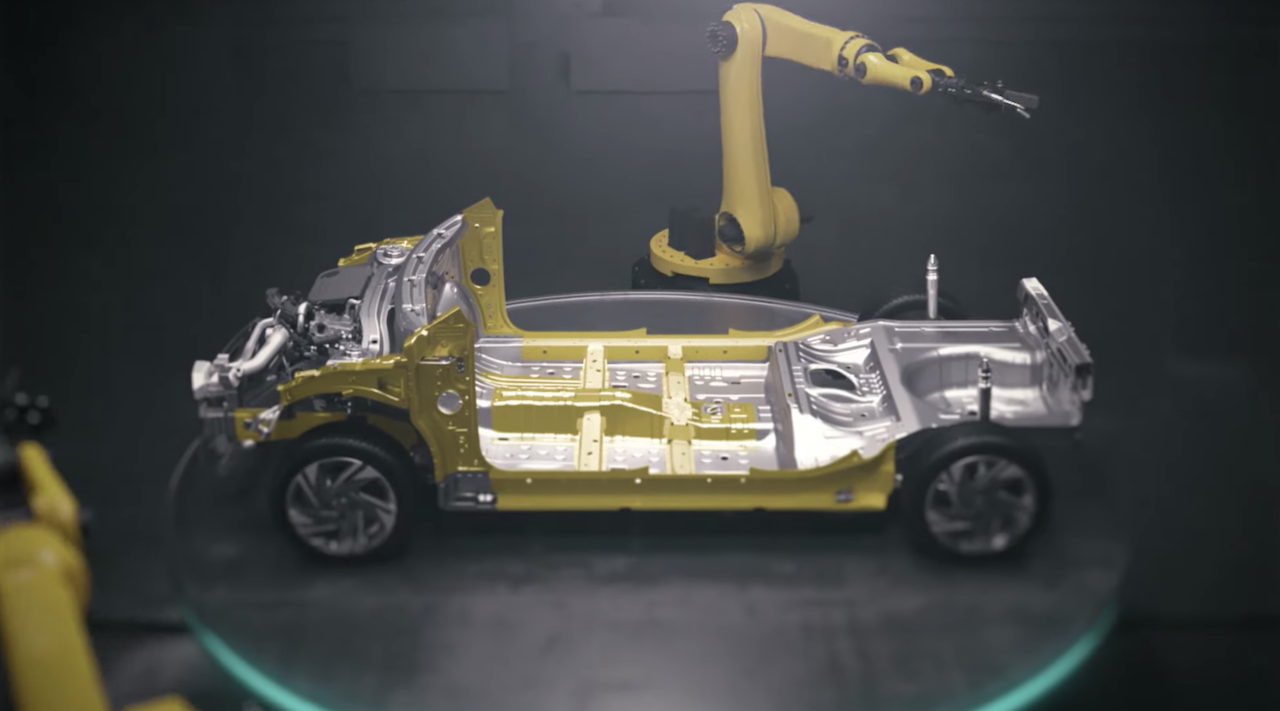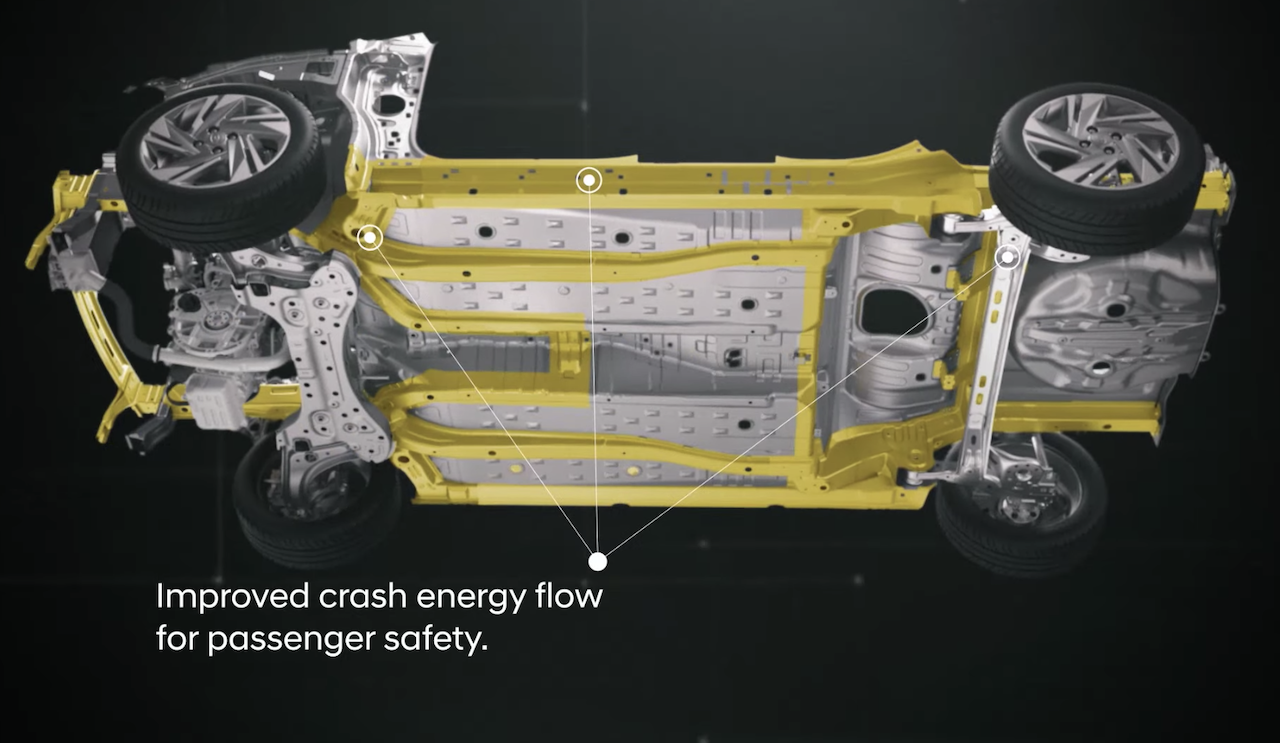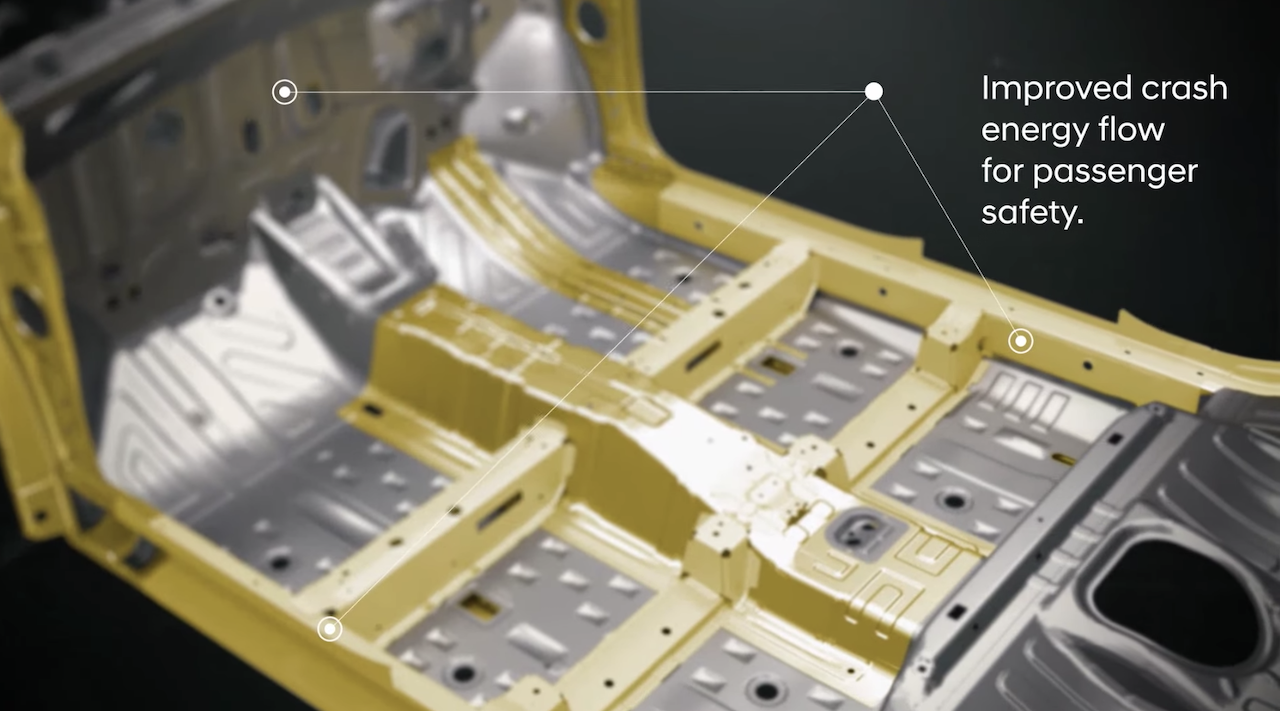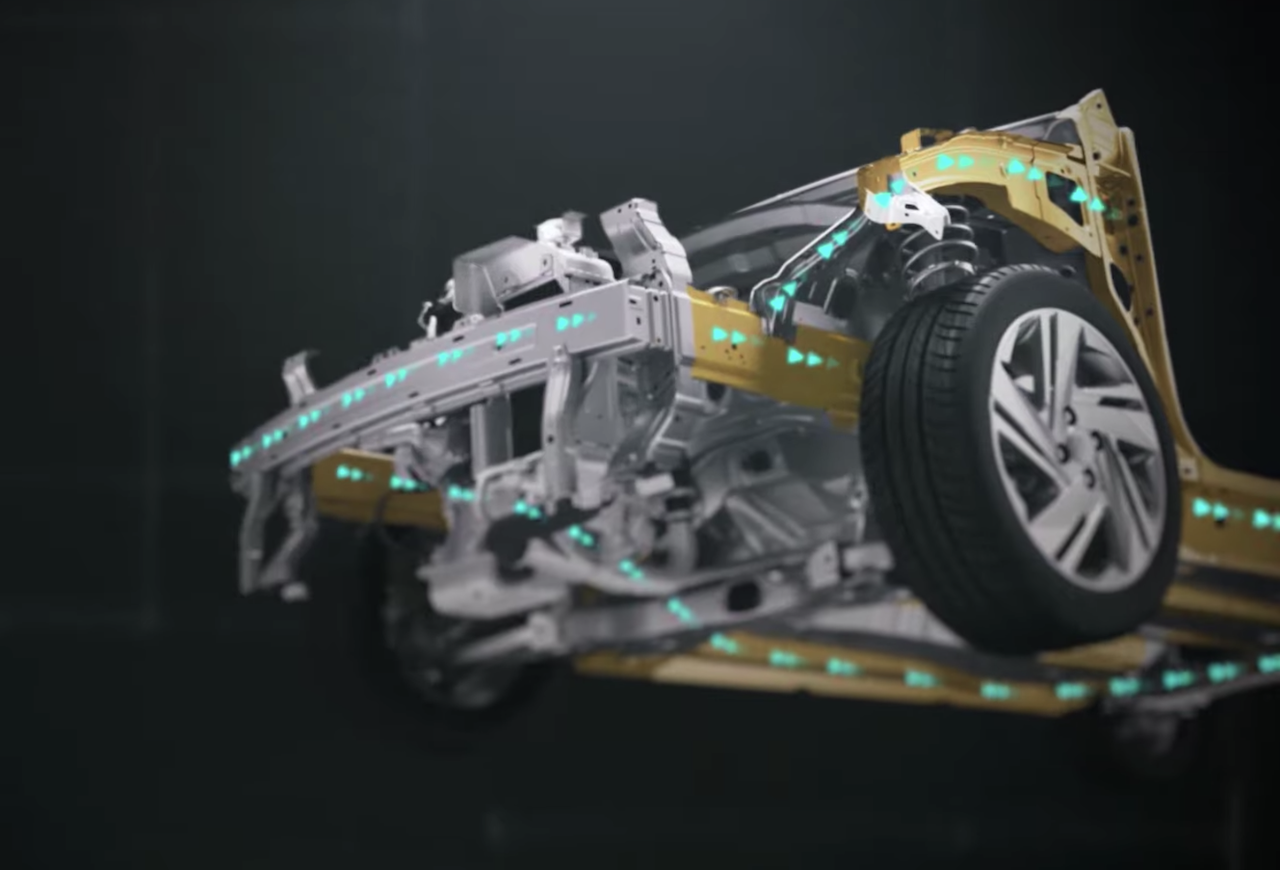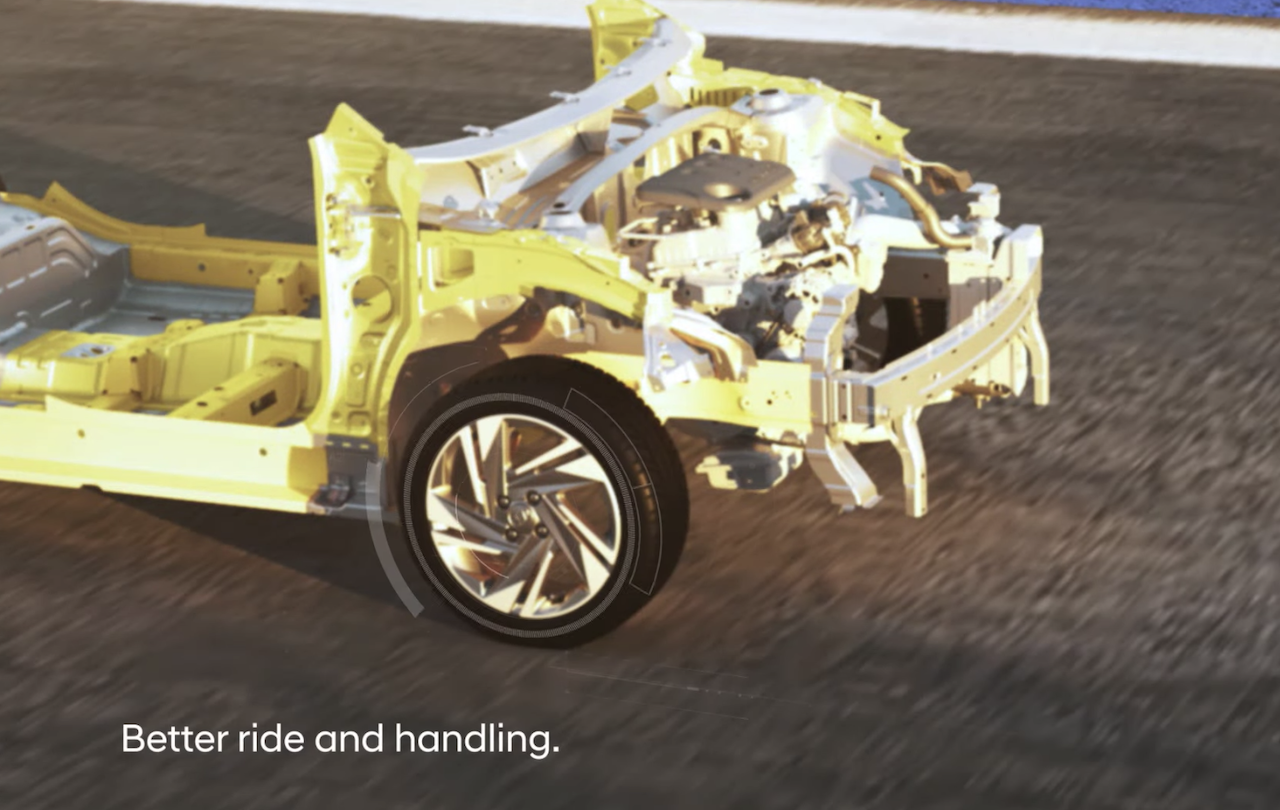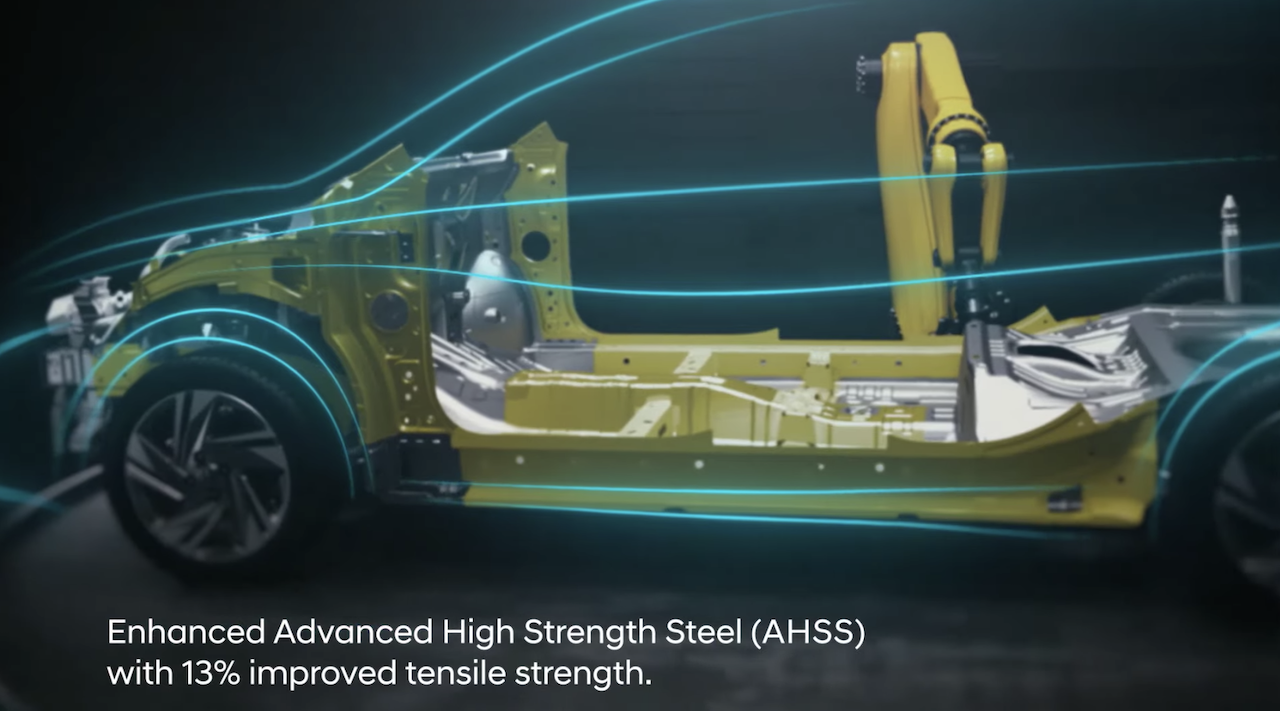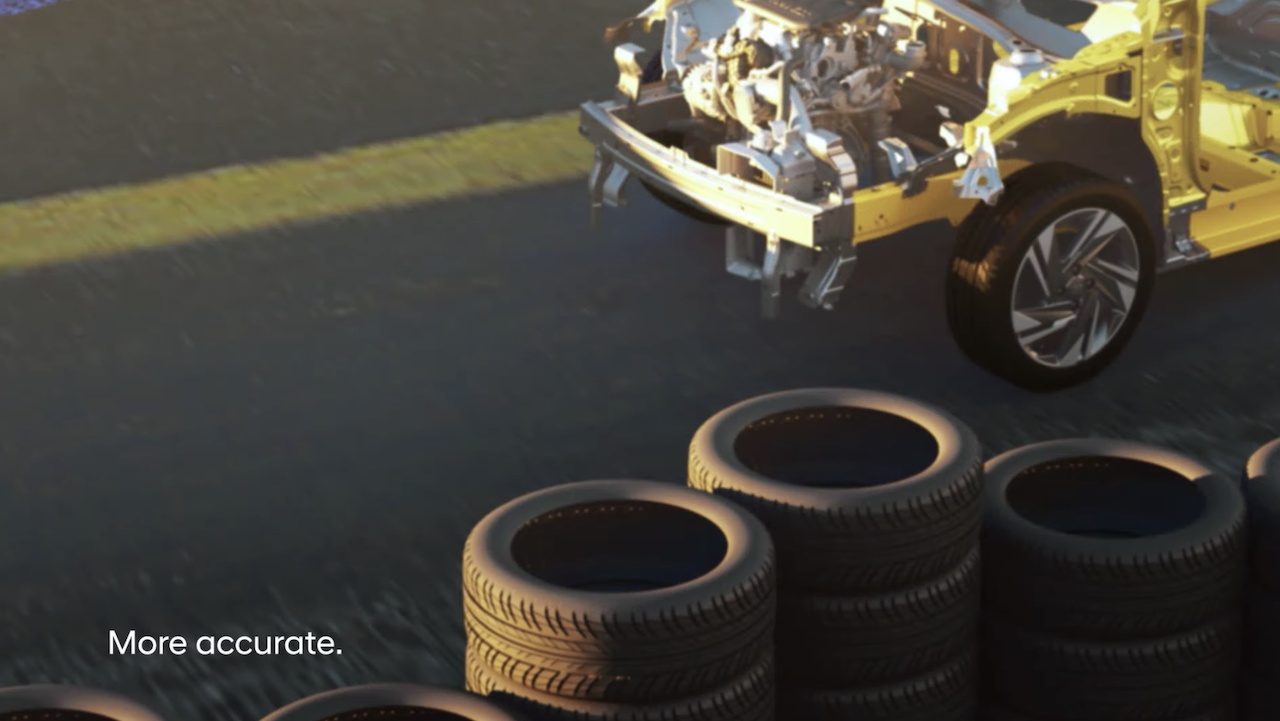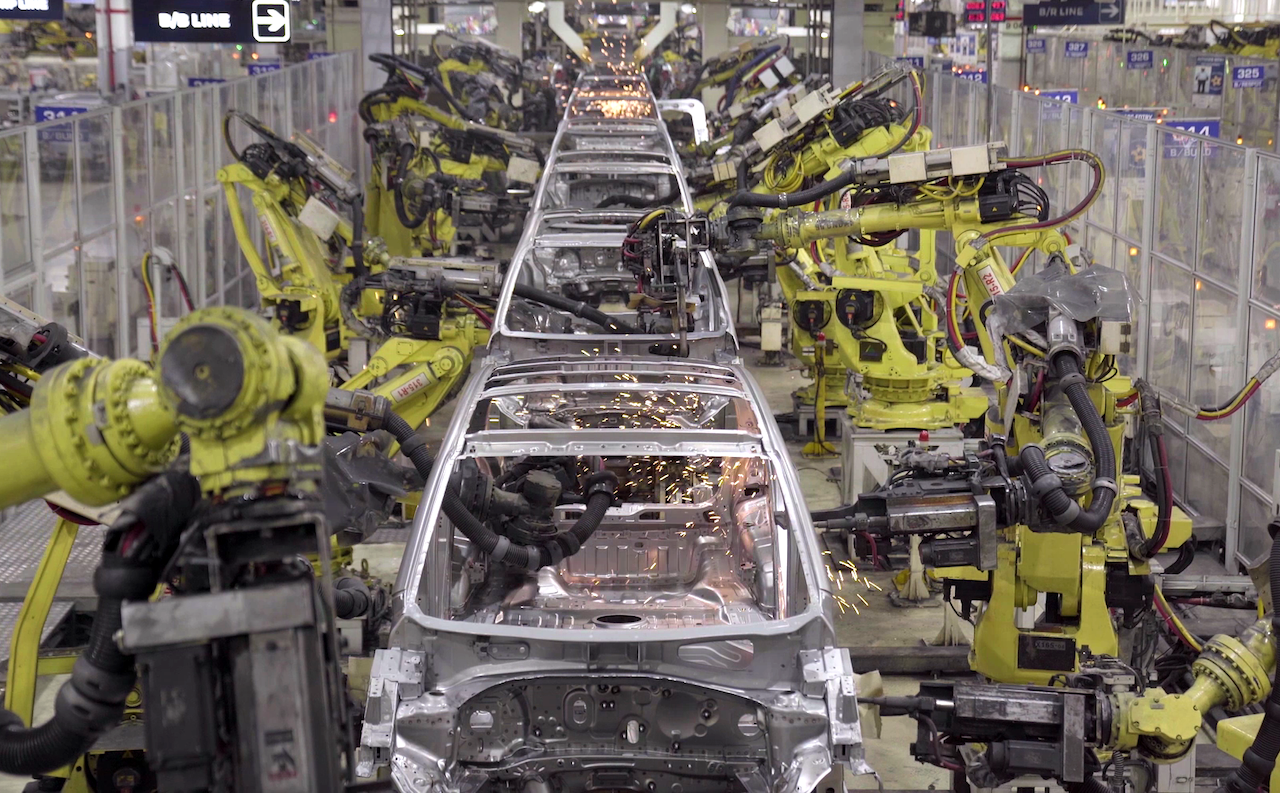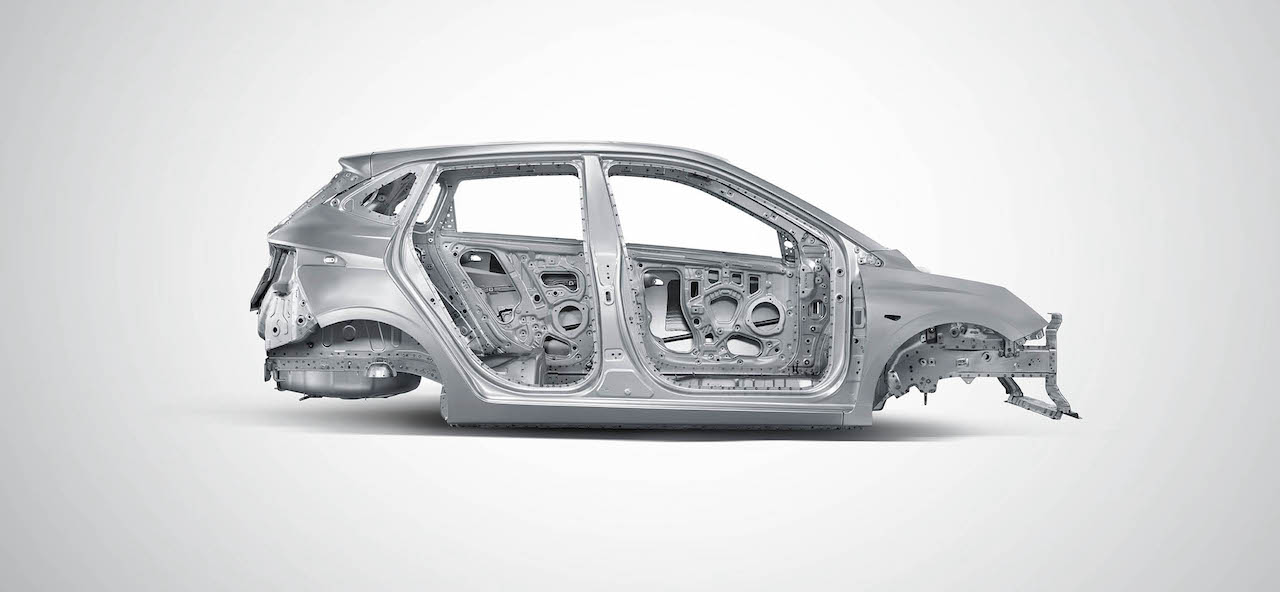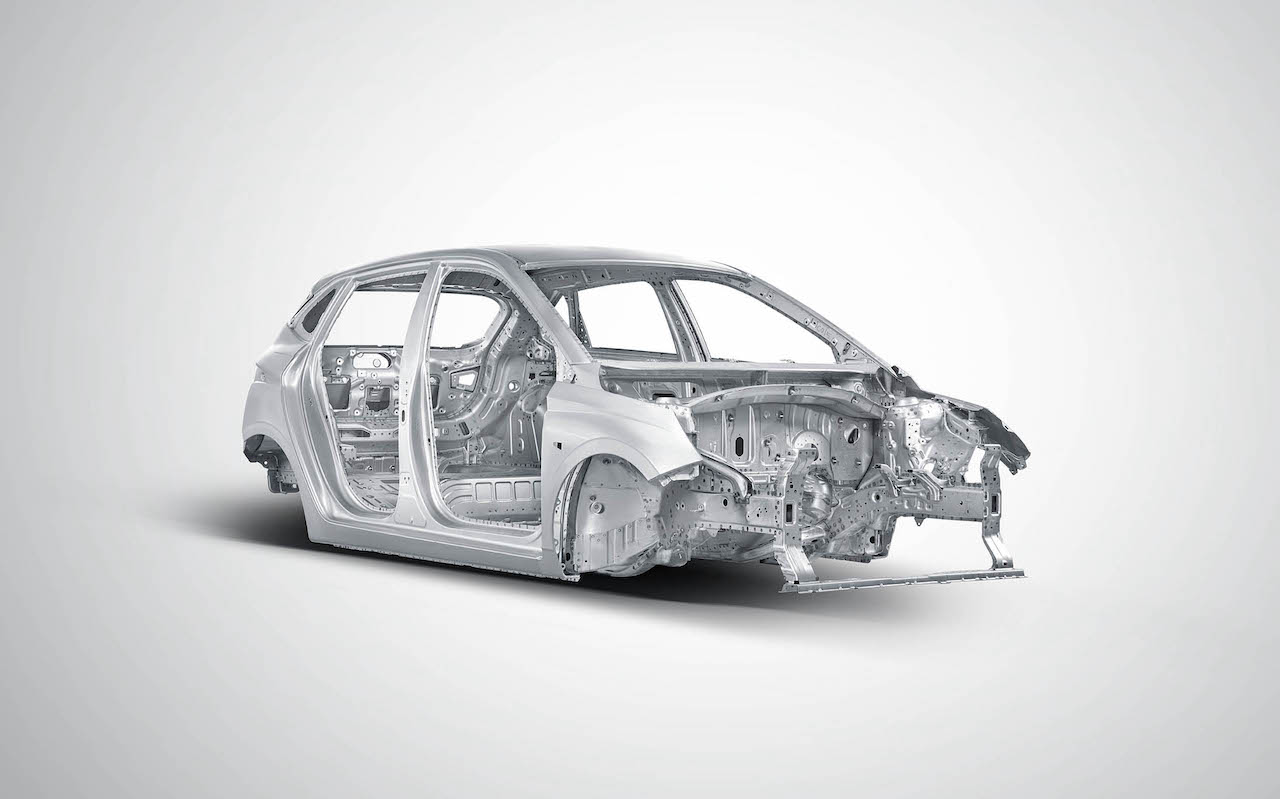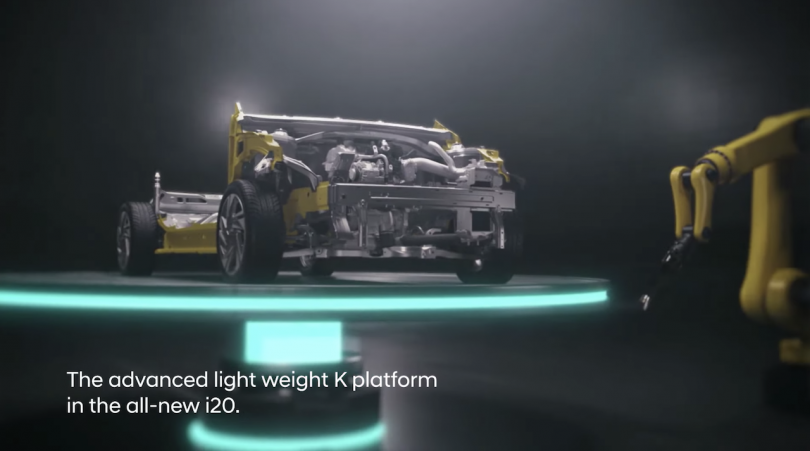Since Global NCAP a voluntary non-profit organisation that crash tests assess and report the protection aspect of a vehicle under their SaferCarsForIndia initiative, safety has become an important talking point in the automotive industry. Hyundai has now shared a detailed video on how the newly engineered advanced lightweight ‘K’ platform that underpins the all-new Hyundai i20 improves passenger safety.
The new K platform features Enhanced Advanced High Strength Steel (AHSS) with 13% improved tensile strength that not only provides more comfort but also enhances the vehicle’s dynamics making the vehicle more accurate and responsive with better ride and handling thus improving the safety quotient. The K platform is also engineered with improved crash energy flow to channel the forces caused during a collision to be directed around the passenger so as to keep them safe inside the car. The new K platform also allows the new i20 to gain more space while reducing overall weight and improving torsional rigidity for better handling and comfort.
The all-new i20 has been developed with Human-Centric Engineering and Design, the car features a Robust Superstructure with 66% AHSS enhancing its crashworthiness. The superstructure has been created using a 5,400 Tons Stamping at the Press Shop. Advanced Digital gauge then checks for any flaws during the manufacturing process and only ‘High-quality grade coils’ are used.
The i20 is built on a futuristic Global Body Build Line where the high-quality welding is carried out by 100 % Weld Automation using 4504th Generation Robots that perform over 4,000 welding spots in each car, and 70 cars go through the process in an hour. The robot line offers a flawless manufacturing process which is confirmed by a three-stage advance quality confirmation system with – Intelligent weld monitoring, real-time weld quality confirmation system (Colour Tip Sensor) and a real-time sealer quality confirmation system.
The Hyundai i20 also goes through a series of processes before it is completed, for example, 80% of the car’s parts are fixed, through a 100% systemized 3 stage dynamic tightening confirmation system and it has to go through a 324-point check in HIDIS (Hyundai Integrated Digital Inspection System) ensuring highest levels of quality.
It is important to note that the Global NCAP and the Euro NCAP haven’t crash tested the 3rd generation 2020 Hyundai i20 yet.
